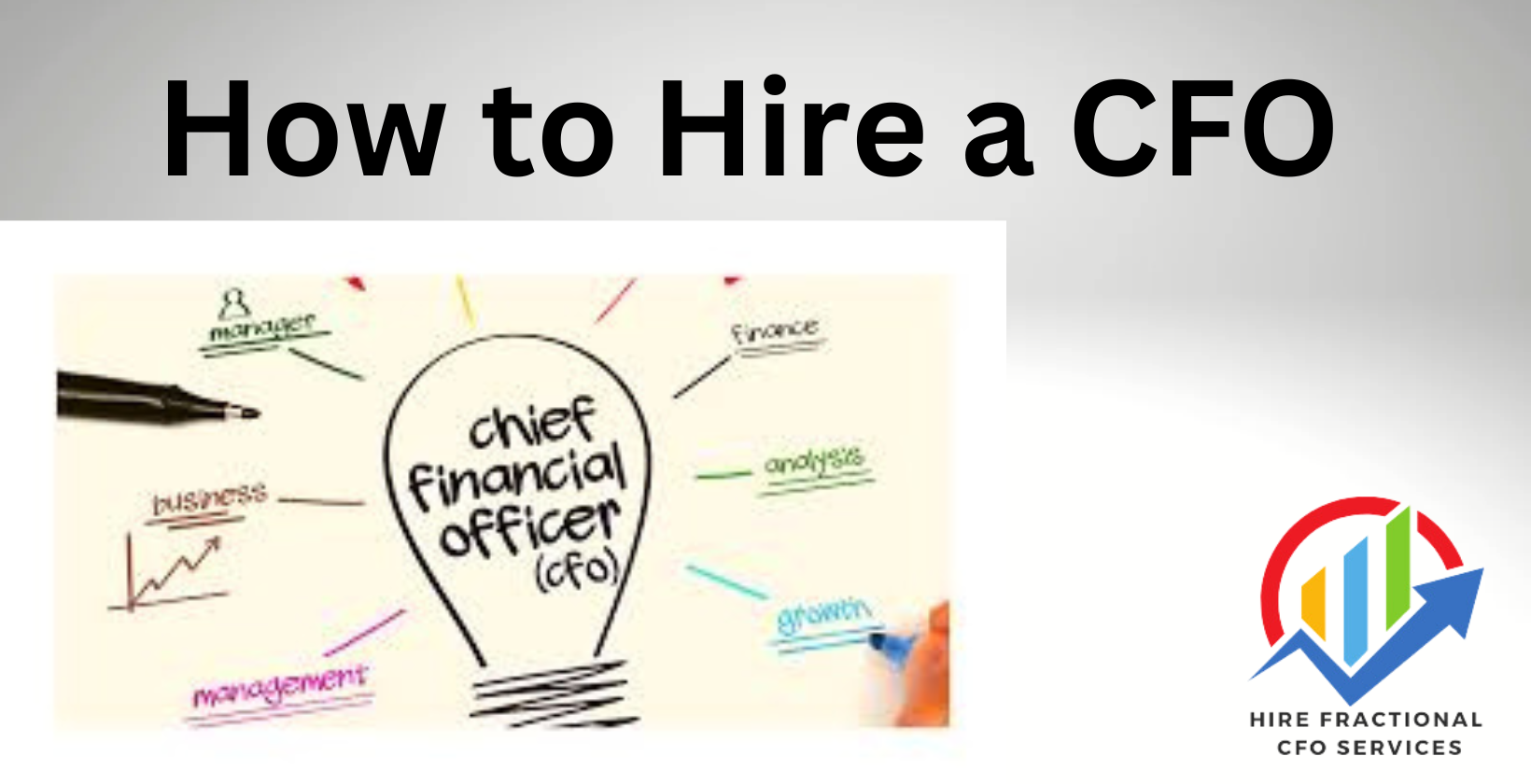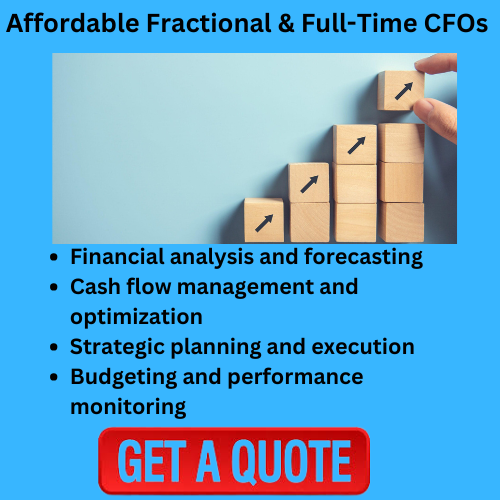Hiring a Chief Financial Officer (CFO) is a strategic decision that requires identifying a candidate who can align with your company’s financial goals and operational strategy. The CFO is responsible for overseeing financial planning, risk management, record-keeping, and financial reporting. Companies must assess the specific needs of their business, outline the skills and qualifications required, and follow a structured recruitment process to secure the best talent for this critical role. A well-hired CFO drives financial health, supports growth initiatives, and ensures compliance with industry regulations. This article outlines the key steps and considerations involved in hiring a CFO effectively.
How to Hire a CFO for a Startup
Hiring a CFO for a startup requires a tailored approach that considers the unique challenges and growth potential of the company. The steps include:
- Define the Role Clearly
The role of a CFO in a startup often extends beyond traditional financial management to include strategic planning, fundraising, and scaling operations. Clearly define the responsibilities and expectations for the position.
- Determine Budget Constraints
Startups usually operate within tight budgets. Establish a realistic salary range or consider equity-based compensation to attract top talent without straining resources.
- Seek Candidates with Relevant Experience
Look for candidates with experience in startups, fundraising, and navigating financial complexities in early-stage businesses. Industry-specific expertise can be an added advantage.
- Leverage Professional Networks
Use professional platforms like LinkedIn, startup incubators, or financial networks to find potential candidates. Referrals from investors or industry contacts can yield high-quality leads.
- Conduct Thorough Interviews and Assessments
Evaluate candidates’ skills in financial modeling, strategic planning, and investor relations. Use case studies or practical assessments to gauge their ability to handle real-world startup challenges.
- Prioritize Cultural Fit
A CFO in a startup must align with the company’s vision, values, and culture. Ensure the candidate shares a growth-oriented mindset and adaptability to a dynamic environment.
- Formalize the Hiring Agreement
Offer a comprehensive package, including salary, bonuses, and equity options. Clearly outline expectations, performance metrics, and termination clauses in the employment contract.
How to Hire a Fractional CFO
A fractional CFO offers financial expertise on a part-time or project basis, making it a cost-effective solution for businesses that do not require a full-time CFO. The hiring process includes:
- Identify the Scope of Services
Determine the specific financial functions the fractional CFO will handle, such as budgeting, cash flow management, or preparing for investor presentations.
- Evaluate Your Financial Needs
Assess the complexity of your financial operations to decide the number of hours or days per month the fractional CFO will be required.
- Search for Specialized Professionals
Look for fractional CFOs through specialized agencies, online platforms like Toptal or Paro, or referrals from business consultants. Ensure they have experience in your industry.
- Verify Credentials and Experience
Confirm the candidate’s qualifications, such as a CPA or MBA, and their track record in managing financial challenges relevant to your business.
- Discuss Flexibility and Availability
Ensure the candidate can meet your scheduling requirements and adapt to fluctuating needs during critical periods like audits or fundraising rounds.
- Agree on Compensation Terms
Fractional CFOs typically charge hourly or project-based fees. Negotiate a rate that aligns with your budget and the scope of work.
- Set Clear Deliverables and KPIs
Establish clear deliverables, such as financial reports or strategic plans, and set performance metrics to measure the CFO’s contribution.
- Formalize the Engagement Contract
Draft a contract detailing the scope of services, payment terms, confidentiality clauses, and termination policies to ensure transparency and mutual understanding.
How to Hire a Virtual CFO
Hiring a virtual CFO provides businesses with remote access to expert financial management and strategic planning. The process involves:
- Define Business Needs and Goals
Identify the financial tasks the virtual CFO will manage, such as forecasting, budgeting, or compliance. Outline your goals for the engagement, like scaling operations or improving cash flow.
- Research Virtual CFO Services
Explore providers that specialize in virtual CFO services through online platforms, agencies, or professional networks. Look for candidates with expertise in your industry.
- Assess Technology and Communication Tools
Since the CFO will work remotely, ensure they are proficient in cloud-based accounting tools like QuickBooks, Xero, or SAP, and establish effective communication channels, such as video conferencing and project management software.
- Evaluate Qualifications and Track Record
Verify the virtual CFO’s qualifications, such as CPA, CFA, or MBA, and their success in handling financial challenges for businesses of similar size or industry.
- Discuss Availability and Flexibility
Confirm the virtual CFO’s availability to meet your scheduling needs and their ability to adapt to urgent or fluctuating demands.
- Negotiate Fee Structure
Virtual CFOs typically charge hourly, monthly, or project-based fees. Negotiate terms that align with your budget while ensuring adequate coverage for your financial needs.
- Set Clear Expectations and KPIs
Define the scope of services, deliverables, and key performance indicators to evaluate the virtual CFO’s contributions, such as financial reports or growth metrics.
- Formalize the Agreement
Draft a contract detailing the services, compensation terms, confidentiality provisions, and termination clauses to protect both parties’ interests.
How to Hire a CFO Freelancer for a Startup
Hiring a freelance CFO offers startups flexible financial expertise without the long-term commitment of a full-time hire. The steps include:
- Identify the Scope of Work
Determine the financial functions the CFO freelancer will handle, such as fundraising support, financial forecasting, or cash flow analysis.
- Search for Candidates on Freelance Platforms
Use platforms like Upwork, Freelancer, or specialized sites like Toptal to find CFO freelancers. Narrow your search to those with experience in startups and relevant industries.
- Verify Credentials and Experience
Review the freelancer’s qualifications, certifications, and track record. Check testimonials or references to ensure they have successfully supported startups in the past.
- Assess Communication and Adaptability
Schedule interviews to evaluate their ability to communicate financial strategies effectively and adapt to the dynamic needs of a startup environment.
- Negotiate Payment Terms
Freelance CFOs typically charge hourly or on a project basis. Discuss rates and ensure transparency in payment terms to avoid misunderstandings.
- Set Milestones and Deliverables
Define specific milestones, such as the completion of financial reports or the successful execution of a fundraising campaign, to measure their performance.
- Draft a Comprehensive Agreement
Include the scope of work, payment terms, confidentiality clauses, and termination policies in the contract to formalize the engagement.
- Monitor Performance Regularly
Schedule periodic reviews to ensure the freelancer meets expectations and contributes effectively to the startup’s financial health.
How Long Does It Take to Hire a CFO
The time it takes to hire a CFO varies depending on the complexity of the role, the organization’s specific needs, and the hiring process. On average, hiring a CFO can take two to six months.
This timeline includes defining the role, sourcing candidates, conducting interviews, and negotiating terms. For specialized roles, such as startup or industry-specific CFOs, the process may extend further due to the need for niche expertise. Organizations often expedite the process by using professional networks, executive search firms, or fractional and virtual CFO services.
Skills and Qualifications to Look for in a Chief Financial Officer
| Skills | Qualifications |
| Strategic Financial Planning | CPA (Certified Public Accountant) |
| Risk Management | MBA (Master of Business Administration) |
| Budgeting and Forecasting | CFA (Chartered Financial Analyst) |
| Financial Analysis and Reporting | Degree in Accounting, Finance, or Economics |
| Knowledge of Compliance and Regulations | Experience in Industry-Specific Finance |
| Leadership and Team Management | Proven Track Record in Financial Strategy |
| Proficiency in Financial Software and Tools | Knowledge of Tax and Audit Standards |
| Investor Relations and Fundraising Skills | Certifications in Financial Modeling |
| Problem-Solving and Decision-Making | Experience in Mergers and Acquisitions |
| Communication and Interpersonal Skills | Demonstrated Success in Scaling Businesses |
How Much Does It Cost to Hire a CFO
Hiring a full-time Chief Financial Officer (CFO) can be a significant investment for a company. According to industry data, the average annual salary for a full-time CFO in the United States ranges from $150,000 to $500,000, depending on factors such as company size, industry, and geographic location. This figure excludes additional costs like bonuses, benefits, and equity compensation, which can further increase the total expenditure.
How Much Does It Cost to Hire a Fractional CFO
Engaging a fractional CFO offers a more cost-effective alternative to a full-time hire. Based on the pricing information from hirefractionalcfoservices.com, the costs are structured as follows:
- Essential Plan: $1,499 per month for up to 10 hours of service, suitable for startups or small businesses with basic needs.
- Growth Plan: $3,999 per month for up to 20 hours of service, ideal for scaling businesses requiring deeper insights.
- Advanced Plan: $5,999 per month for up to 40 hours of service, designed for mature businesses with complex operations.
- Custom Plan: Pricing varies based on tailored services and flexible monthly hours to match unique demands.
These plans include services such as financial strategy development, budgeting and forecasting, cash flow management, KPI analysis and reporting, and executive-level advisory. Optional add-ons like M&A support, investor reporting, fundraising assistance, and software implementation guidance are available for an additional fee.
Opting for a fractional CFO allows businesses to access high-level financial expertise and strategic planning at a fraction of the cost of a full-time CFO, with the flexibility to scale services according to their evolving needs.


